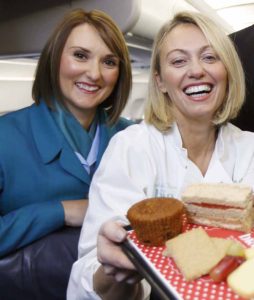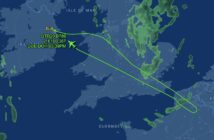- Aer Lingus offering hot rather than cold sandwich
- Trade Union leaders ask staff not to co-operate
- Catering arrangement likely to be next big industrial relations issue at Aer Lingus
 Is serving a hot sandwich rather than a cold sandwich an industrial relations issue? Aer Lingus faces the threat of strike action over a new sandwich option for customers on long haul flights.
Is serving a hot sandwich rather than a cold sandwich an industrial relations issue? Aer Lingus faces the threat of strike action over a new sandwich option for customers on long haul flights.
With an increasing number of long haul flights on offer from Aer Lingus (next up is the Miami in September), the airline has trialled extra food options on their longer services.
These include a magnum or cornetto ice cream between meals, and the replacement of the final meal, usually a cold sandwich, with a “bake house” hot sandwich.
Impact has claimed this is a change in terms and competitions. The union is to ballot 1,000 Aer Lingus cabin crew on whether selling of extra sandwiches, ice cream, tea and coffee on transatlantic flights is worthy of strike action.

The Sunday Business Post reported that the union whose aviation section is headed up by Michael Landers have asked staff not to co-operate with the new service and quote an internal memo: “The company have been informed that the ice cream/Bia with free tea and coffee/hot snack, sandwich service due to start tomorrow is in contravention to our service agreement,”
Aer Lingus says that complimentary hot meal, tea and coffee remain part of the trans-Atlantic service. Out of hours or extra filter coffees bought as part of the Bia menu are charged.

Regardless of the outcome fo the sandwich spat, catering arrangement likely to be next big industrial relations issue at Aer Lingus. Trade union sources have been shoring up their position on changes in catering arrangements in anticipation of a widely expected move by the airline to outsource its catering arrangements.
Only Turkish Airlines and Aer Lingus continue to keep catering inhouse among airlines serving Dublin.
The definition of a sandwich has a special place in airline folkore as it caused rancour among IATA members in the 1960s, when anti-competitive ticketing regulations were redrawn by the aviaton body to define how much food could be served by airlines on flights.




